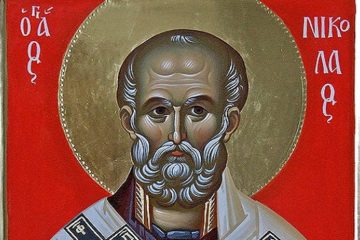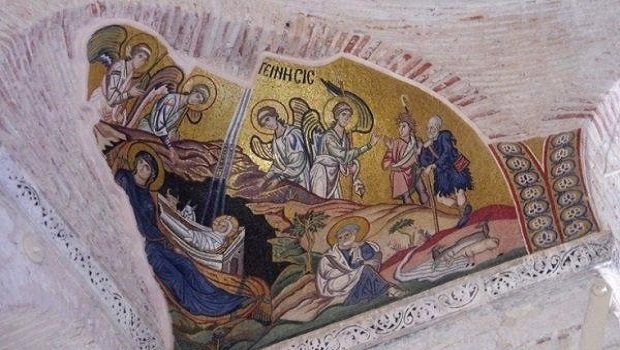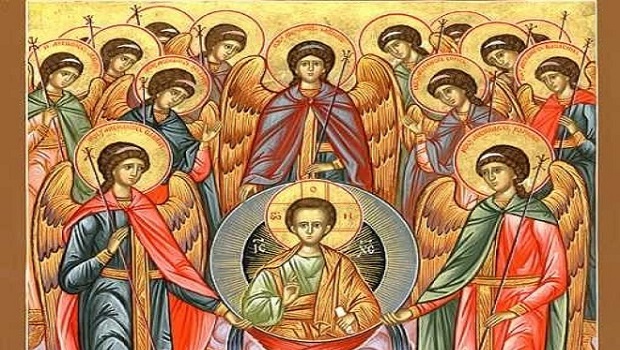For those whose parents are seriously ill, the Elder advised that they should do whatever good and kind deed they can for their parents, to care for them lovingly, to give them affectionate attention and treat them with the tenderness they would a baby, to look after them in every possible way, and also even to ‘indulge their every whim’ so as to keep them happy. We must in every way alleviate the cross of sickness. ‘If you do this’, he said, ‘two things will happen to you. The first is that God, as He says in the Old Testament, will grant you a long life, and he will also give you a gift (that your days may be long upon the land which the Lord your God gives you). ‘What gift?’, you might ask. Only God knows, but that’s God for you, and being God His gifts are commensurate’, he added.
However, the greatest responsibility that children have towards their sick parents is to ensure that a spiritual guide comes so they can have confession and then communion (in fact, they ought to have communion often). If it happens that they pass away, we have to tell the priests to remember their names in every Holy Liturgy. We, too, must keep them in our own prayers and also give alms in their name – on their behalf. The Elder also told me that it would be better if the almsgiving were done by the person in question, when still alive, but if, after they’ve passed away, their children give alms in their name, then God accepts it out of His love for us. In this way, the souls are truly helped, thanks to all this (first and foremost, of course, being the remembrance in the Holy Liturgy).
Sometimes, usually on a Wednesday, my mother would happen to cook non-fast food, whereas I would sometimes want to fast. At first – and this was a grave mistake – I would upset my mother, and have her make me something special. Naturally, when the Elder heard what I’d done, he told me to humbly and lovingly eat whatever my mother made for me, and not tire her in any way (of course, if someone is able to make something special themselves they can, but again in such a way that won’t upset their parents). It goes without saying, that as important as fasting may be, our duty towards our parents, and generally our love towards them, outweighs this, at least as long as we’re still in their care. Later on in life we can make our ‘special’ meals ourselves.
At other times, mainly on feast days, my parents would eat very early, and, not being able to eat at such an hour, I wouldn’t join them at the table. The Elder advised me that that was wrong. I ought to sit with them at the celebratory meal, and eat a little, just to keep them company and make them feel good, and later I could eat again, normally this time.
The Elder also had a lot of respect for medicine and held doctors in high regard. Generally speaking, he believed that not only was it a sin but even suicide to refuse to go to the doctor when necessary. However, I have to admit that the Elder did not view homeopathy or acupuncture favourably, nor psychotherapy by means of hypnosis. Besides, from what I’ve read, homeopathy prescribes medicine which contains no active ingredients, as they have been diluted so many times that no trace is left whatsoever in the final concoction. The same applies to acupuncture as well, and even more so to ‘yoga’, which isn’t simply a form of ‘exercise’, but a Hindu practice. As for hypnosis, he thought there was a danger of demonic action becoming involved.
Read the previous parts here (part 1, part 2, part 3, part 4)
Source: pemptousia.com




0 Comments